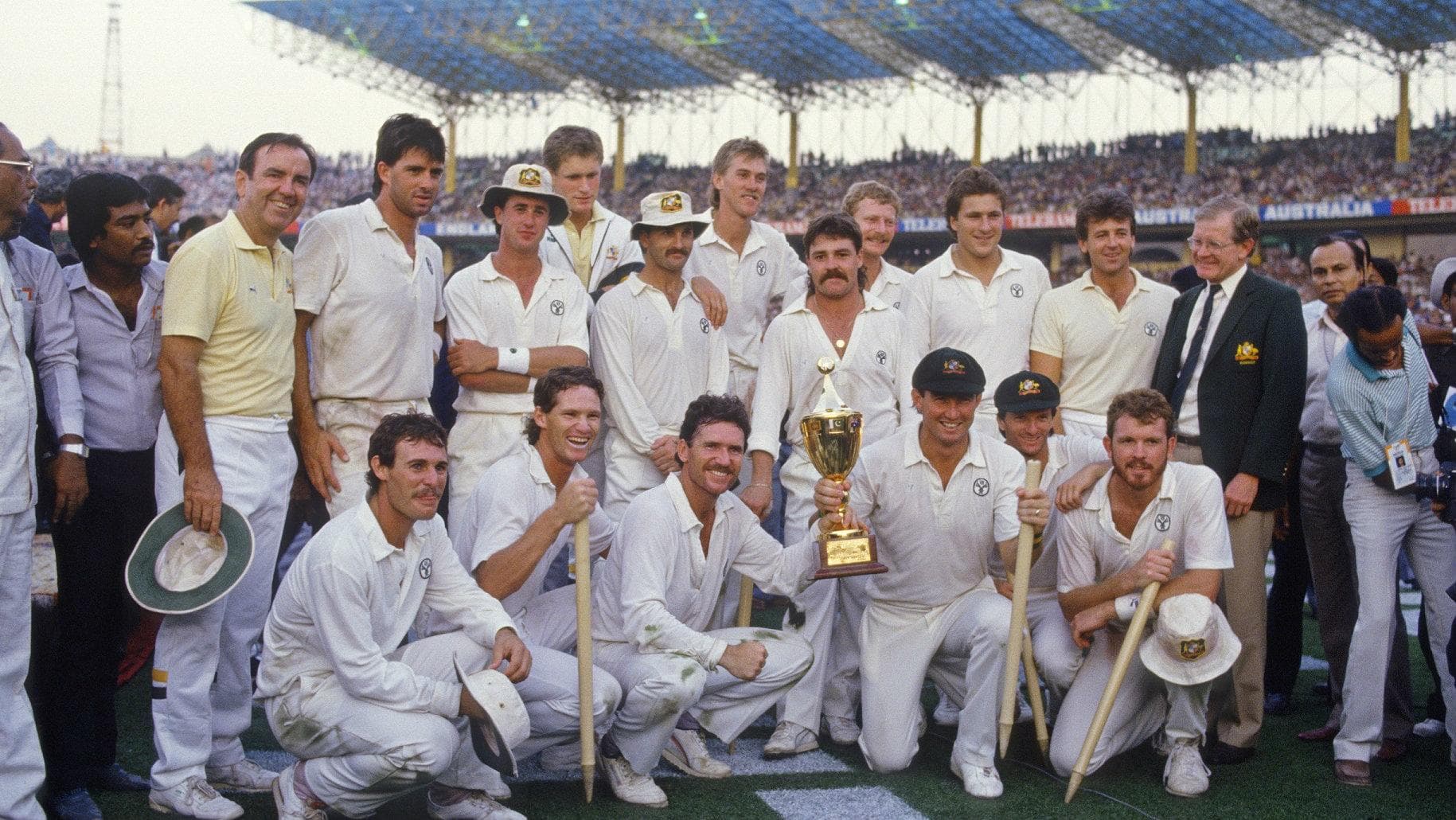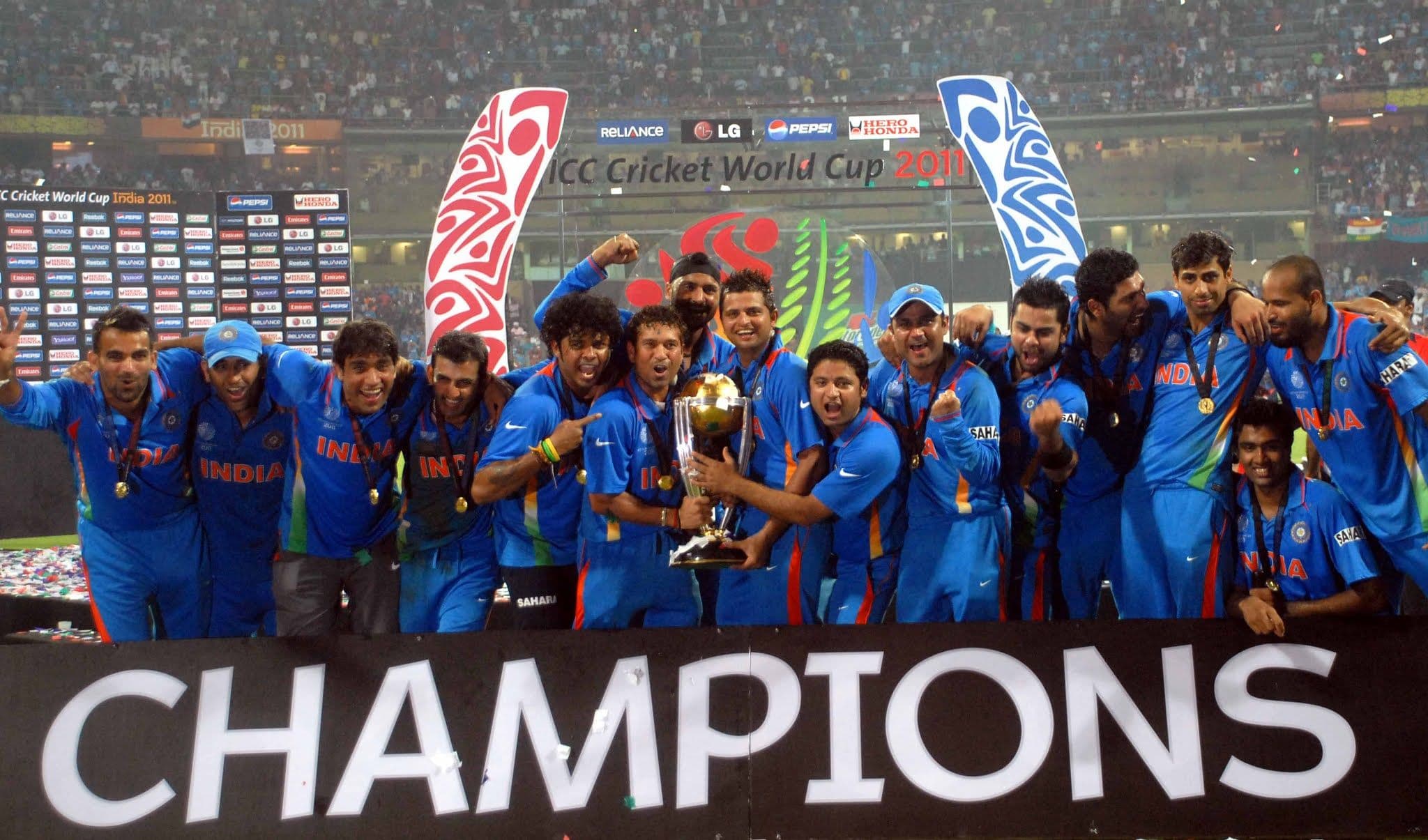Cricket
India vs West Indies World Cup 1983 – a watershed moment in Indian cricket history
The 1983 World Cup victory marked the inception of India’s ascendancy as a cricketing powerhouse in the years that followed.

Kapil Dev Winning 1983 World Cup
Overview of 1983 World Cup
The 1983 Cricket World Cup holds a special place in the history of Indian cricket. Hosted by England, the Prudential Cup '83, as it was known officially at the time, saw the underdog Indian team, led by Kapil Dev, defy all odds to clinch their maiden World Cup title.
Featuring eight teams divided into two groups, the 1983 Cricket World Cup was held from June 9 to June 25. The ODI matches back then comprised 60 overs per innings and were played with the red ball and in traditional white clothing.
West Indies, who had won the previous two World Cups, were the favourites to win the tournament. The likes of England and Australia also boasted formidable squads. India, however, were considered the least formidable. Their past performances in international cricket had been uninspiring. However, under the leadership of Kapil Dev, India embarked on a journey that would change the course of cricket history, especially for India. The India vs West Indies World Cup 1983 marked a watershed moment in cricket history.
INDIA'S JOURNEY TO THE FINAL
1983 CRICKET WORLD CUP
| OPPOSITION | RESULT | MARGIN | GROUND | DATE |
|---|---|---|---|---|
| West Indies | Won | 34 Runs | Manchester | 09 JUN |
| Zimbabwe | Won | 5 Wickets | Leicester | 11 JUN |
| Australia | Lost | 162 Runs | Nottingham | 13 JUN |
| West Indies | Lost | 66 Runs | The Oval | 15 JUN |
| Zimbabwe | Won | 31 Runs | Tunbridge Wells | 18 JUN |
| Australia | Won | 118 Runs | Chelmsford | 20 JUN |
| England | Won | 6 Wickets | Manchester | 22 JUN |
| West Indies | Won | 43 Runs | Lords | 25 JUN |
India vs West Indies World Cup 1983: India’s Journey to the Final
India's opening match was against the reigning champions, West Indies at Manchester. India scored 262/8 in 60 overs, led by Yashpal Sharma's 89. They then bowled out West Indies for 228, winning by 34 runs, with Roger Binny and Ravi Shastri taking three wickets each. India’s win over West Indies was their first win against a full nation in a World Cup match in seven attempts.
In their second group match at Leicester, India's bowlers, notably Madan Lal (3 wickets) and Roger Binny (2 wickets), limited Zimbabwe to 155 runs. India successfully chased this target in 37.3 overs, with key contributions from Mohinder Amarnath (44) and Sandeep Patil (50).
Next up were Australia, against whom India faced a tough challenge. Despite Kapil Dev's five-wicket haul, Australia managed to score 320 runs, with standout performances from Trevor Chappell (110), Kim Hughes (52), and Graham Yallop (66). India's chase faltered as they were bowled out for just 158 runs as six Indian batters were dismissed in single figure scores.
Just two days after their loss to Australia, India suffered another defeat, this time against the West Indies at the Oval. While India's bowlers, especially Roger Binny, contained the West Indies to 282 runs in the first innings, the Indian batting lineup underperformed. Aside from Mohinder Amarnath's 80 runs, none of the other batters made substantial contributions. India were eventually bowled out for 216 runs. However, this setback didn't deter their confidence, as they rebounded strongly, winning all their subsequent matches.
They won by 31 runs against Zimbabwe after successfully defending 266, of which 175 runs were scored by Kapil Dev alone. Later, the bowlers put up a combined effort to ensure a win for India.
India then defeated Australia by a big margin of 118 runs as Madan Lal and Roger Binny wreaked havoc with the ball, picking up four wickets each. Australia were bowled out for only 129 in a chase of 247. Till date, the 118-run loss is the biggest margin by which Australia has ever lost a World Cup match. With this win, India progressed to the semi-final, where they defeated England.
England, batting first, managed to put up a modest total of 213, which India chased down with nearly five overs to spare. Yashpal Sharma and Sandeep Patil scored fifties to help her reach the final.

The Final Showdown – India vs West Indies, Lord’s, June 25, 1983
Ahead of the final held at Lord's, the popular belief was that West Indies needed to turn up for the match to win the final match against India, who were buoyed by their incredible journey to the final. But the West Indies, known for their menacing pace attack, did a great job to restrict India to a first innings total of 183 runs.
India stuttered throughout their batting innings. Sunil Gavaskar, who had underperformed for most part of the tournament, was dismissed for just two runs. The partnership between Krishnamachari Srikkanth and Mohinder Amarnath provided a brief respite, pushing India past the 50-run mark. However, their momentum was short-lived as Srikkanth was dismissed leg before wicket by Malcolm Marshall. Subsequently, Michael Holding shattered Amarnath's stumps, followed by the crucial wicket of an in-form Yashpal Sharma, who managed just 11 runs. India found themselves faltering under mounting pressure.
The team's next beacon of hope emerged in the form of Kapil Dev, who hit three boundaries before departing for 15 runs after falling victim to Larry Gomes' bowling. Kirti Azad, the subsequent batter, departed without adding to the score. Lower down the order, contributions from Roger Binny, Madan Lal, Syed Kirmani, and Balwinder Sandhu added a few runs to India's total, ultimately reaching 183. This was a small target to defend against the formidable West Indies side. But the Indian bowlers, led by Mohinder Amarnath (3 wickets) and Madan Lal (3 wickets), managed to dismantle the tournament’s strongest batting lineup. Sir Viv Richards, who top scored for the West Indies with 33 runs, was dismissed with the help of a brilliant catch by Kapil Dev, which came to be known as the ‘catch of the century.’ It was one of the defining moments of the final, as it helped India claim their biggest wicket. The ball soared high into the air, and Dev, stationed at short midwicket, displayed incredible athleticism to run backwards and secure the catch with both hands above his right shoulder. The catch turned the game in India’s favour. The image of Dev running backward to take the difficult catch remains an iconic moment in cricket history.
India went on to win the match by 43 runs and denied West Indies their third World Cup title. The underdogs had become world champions. The victory marked the inception of India's ascendancy as a cricketing powerhouse in the years that followed. Cricket, already considered a quasi-religion in India, became even more popular in the country. Young talents, including a 10-year-old Sachin Tendulkar, were inspired to take up the sport, "I was inspired to take up playing the game with the season (hard) ball after the 1983 World Cup victory. Had it not happened things could have been different for me,” Tendulkar said at an event back in 2009.
Over the next few decades after the 1983 triumph, India went on to produce some of the world's finest cricketers, and the Indian team went on to achieve numerous milestones, including a second ODI World Cup title in 2011. India is gearing up to host the upcoming ODI World Cup in October, with aspirations of securing a coveted third title on home soil.
Recommended Articles

Umaima Saeed is a professional sports writer whose articles have been featured in several leading websites. She writes long-form content on sports, particularly cricket. She has a penchant for telling human-interest stories. Umaima has contributed articles on cricket to more than a dozen publications, both in print and online.


